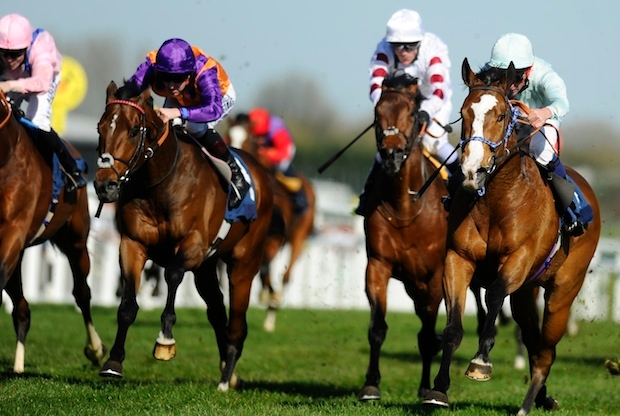Cape Peron was my easiest choice for our Twelve to Follow. When Henry Candy smiles his gentle smile, as he did after Cape Peron won the Park Hill Hospital Handicap at Newbury in early May, and tells you ‘this one could be pretty good’, you take notice. Cape Peron has run twice since and hasn’t won yet, but he will. Both at Royal Ascot and Goodwood, the ground was too firm for him, yet at Goodwood only a brilliant tactical ride by the champion jockey Richard Hughes on the Richard Hannon-trained Wentworth denied Cape Peron victory in the Betfred Mile.
Entering the straight, Dane O’Neill was well positioned, ready to pull out Cape Peron and make his effort. But at that moment whom should he find on his outside, quite legitimately holding him into the rail, but the canny Hughes, who kept him there until he wanted to make his own run for the post. By the time Cape Peron could be extricated Wentworth was too far ahead to be caught, yet Cape Peron got within three quarters of a length.
Henry acknowledges Hughesie’s skill with a rueful smile, but he shares Hannon’s view that Wentworth and Cape Peron were effectively Group horses masquerading as handicappers. Cape Peron’s problem is that he has flat feet and suffers from corns so we are unlikely to see him again until he has ground soft enough to suit.
The legend ‘Winner trained H.Candy, Kingston Warren’ has been appearing since 1973 and it delights me every time I see it. Kingston Warren, a mini-village of its own outside Lambourn amid 1,000 acres of varied gradients, offers a sneak preview of what I hope the Almighty might have in mind hereafter if some of us can start being good.
I hadn’t been to Henry’s yard for 13 years and it remains a glorious time capsule. As we crunched across the stubble in his 4 x 4 with three Labradors in the back, this epitome of the countryman trainer pointed out proudly the eight miles of hedges he has planted to give small birds some protection from the buzzards circling at altitude, the copses now nicely matured after 30 years of care. For 27 years he combined training with farming 750 acres of countryside so vibrant that you keep hoping to see a besmocked van Gogh or Paul Nash at an easel capturing it for future generations.
Like all good trainers he is a calm man of infinite patience: the word unruffled might have been invented for him. But he has a countryman’s resilience and adaptability too. Having trained that great Oaks winner Time Charter in 1982 and Eclipse winner Master Willie, Henry Candy had a dreadful time in the late 1990s when winners were few and far between. He kept going, changed nothing, and started winning again. But in recent seasons it has not been middle-
distance horses who have scored his headline successes; instead it has been sprinters such as Kyllachy, Airwave, Markab and Amour Propre.
Such an emphasis on speed seems slightly strange, a tad flashy, for a man who admits that if he were not training Flat horses he would prefer to be watching jumpers: ‘It is an admirable sport. I suppose it is the danger involved. The people who are in it are in it for the sport: on the Flat they are mostly in it, if possible, for the money.’ He doesn’t, though, train jumpers himself, largely because his all-weather gallop washed away in a storm. It is too expensive to restore and he does not want his wonderful grass gallops churned up every winter.
It is simple economics that has turned him into a leading trainer of speedsters. Thirteen years ago he was training mostly for owner breeders. Now he has to rely on what he can pick up at the sales and he doesn’t have owners ready to sign the six-figure cheques needed to buy top-class middle-distance prospects.
But old dogs, at least those with a good eye for a horse, can learn new tricks and Henry Candy relishes finding sales bargains. ‘If I had a horse worth £75,000 it would be gold. I wouldn’t dare take it on the gallops. But I’m quite happy messing around. Valonia [winner of a hot Goodwood maiden and since sold to the Qataris] cost me just five and a half grand. Treaty of Paris, who won the Acomb [a Listed race at York] was just £16,000. I know you need a huge amount of luck but to me it’s a great challenge. I thoroughly enjoy going to the sales trying to pick up things which no one else wants.’ Airwave, who won the Cheveley Park Stakes, was acquired for a mere £12,000. And what about Amour Propre, a dual Group winner? Henry chuckles: ‘He cost a fortune. He was fifteen hundred!’
And the winners still to come from this yard on a hot streak? Watch out for the big two-year-old Faure Island and for White Russian when she has a race or two under her belt.






Comments